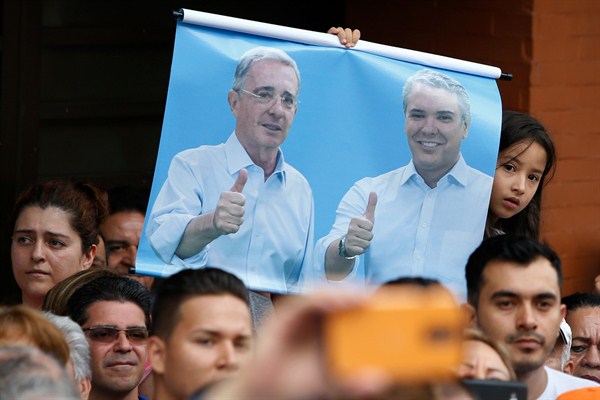Last Sunday, Colombians elected their next president in a second round run-off, delivering a strong victory for the conservative candidate, Ivan Duque, as the polls had predicted. That the outcome was largely expected in no way diminishes the historic significance of the election, and it does nothing to ease the complexity of the challenge facing the man some are calling Colombia’s Emmanuel Macron, a young, little-known figure who rose from relative obscurity, vowing to bring change.
The comparison to the French president is overdone. Like Macron, Colombia’s president-elect faces high expectations. On the economic front, the center-right Duque, who worked at the Inter-American Development Bank in Washington before entering Colombian politics as a senator four years ago, will not bring a radical transformation, except to make Colombia’s already market-friendly policies even more so. But that doesn’t mean that he will take the rudder and stay the course. If he does, he will have failed.
Colombia has entered a new age. The election was the first since the signing of the controversial peace deal that ended half a century of war between the state and the Marxist guerrilla group known as the FARC, which is now a political party. That’s only one of the ways the election made history, though.

